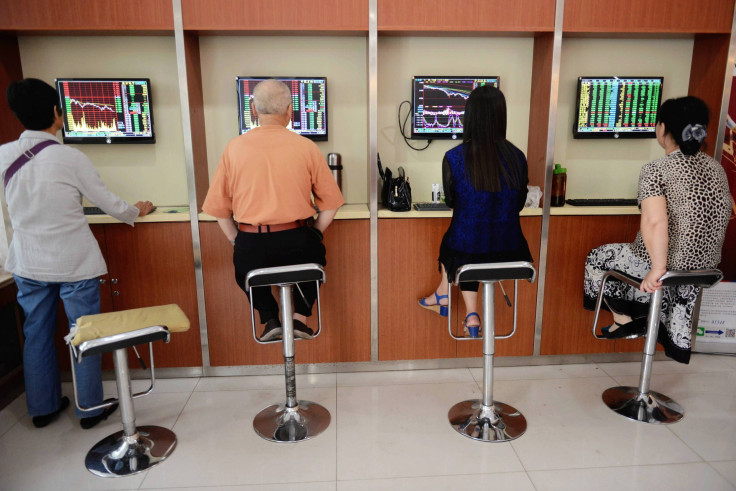Shanghai Composite Index Suffers Biggest Single-Day Fall In 8 Years

China's Shanghai Composite index on Monday suffered its worst single-day fall since 2007, as fears over the government ending its market-stabilization campaign triggered panic selling. The benchmark index plunged nearly 8.5 percent -- closing at 3725.56 -- while the smaller Shenzhen Composite fell over 7 percent.
“Today’s rout in China poured cold water on investor sentiment,” Mari Oshidari, a Hong Kong-based strategist at Okasan Securities Group Inc., told Bloomberg. “This also revealed the market is still too fragile without government support.”
The crash comes just three weeks after the government took drastic measures to curb falling stock prices by banning large shareholders from selling stakes, ordering state-run institutions to buy shares, and allowing many companies to halt trading in their shares. The unprecedented intervention was necessitated by a 30 percent plunge in the Shanghai Composite index in a span of three weeks between mid-June and early July, after it rose 150 percent in less than a year.
Following the slew of stabilization measures, the Shanghai Composite index crossed the “psychologically important” 4,000-point mark last week -- rebounding 16 percent from its July 8 low. Before Monday’s sell-off, Chinese markets had enjoyed two weeks of relative calm.
How today's session on the Shanghai market rollercoaster compares with other one-day drops. http://t.co/VqPFn9JYER pic.twitter.com/4YZ7Dm9rpT
— fastFT (@fastFT) July 27, 2015“The previous support from the government funds is apparently unsustainable,” Jacky Zhang, an analyst at China’s BOC International, told the Wall Street Journal on Monday.
Earlier, on Friday, it emerged that the International Monetary Fund had urged China to unwind the measures taken to stem the stock sell-off so that market forces could reset the price of shares, according to media reports.
“They [the Chinese government] may withdraw support today to test whether the market has recovered its resilience,” Zhang told the Journal.
© Copyright IBTimes 2024. All rights reserved.






















